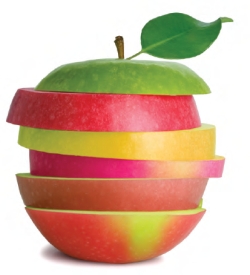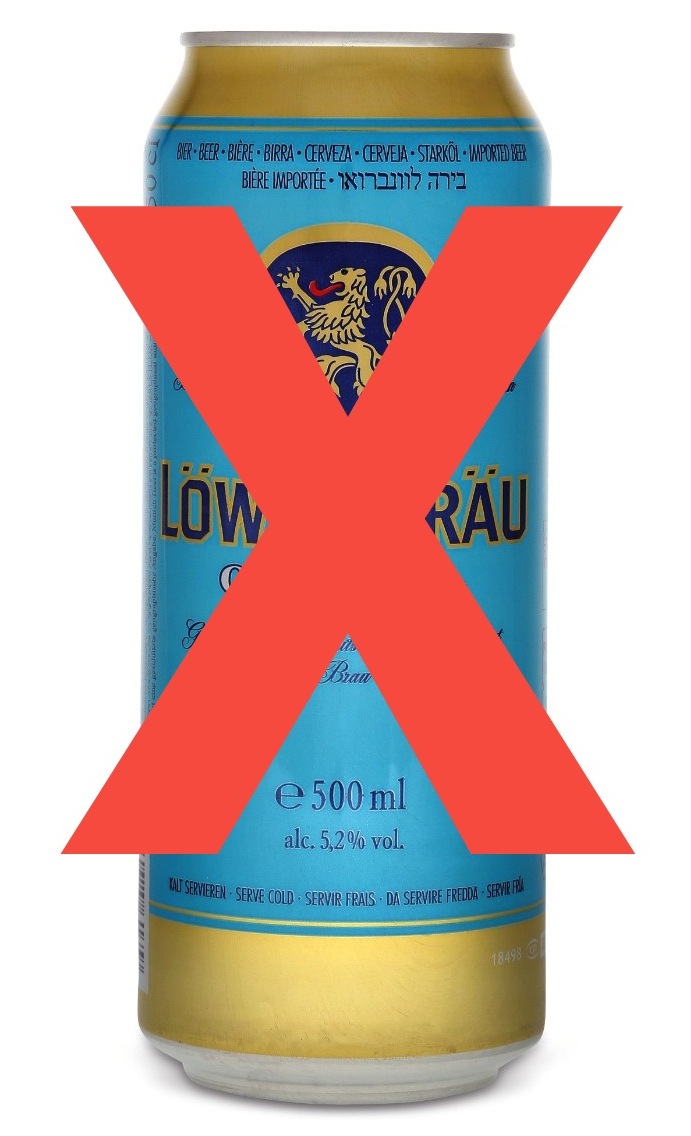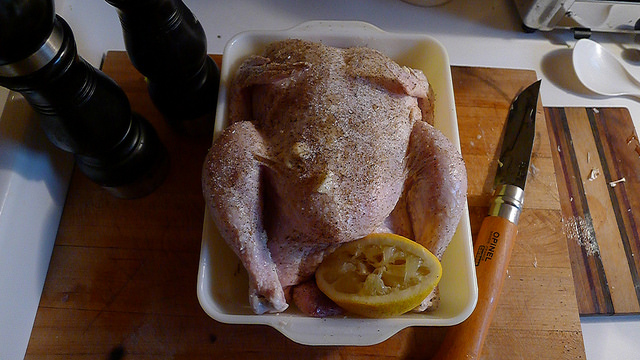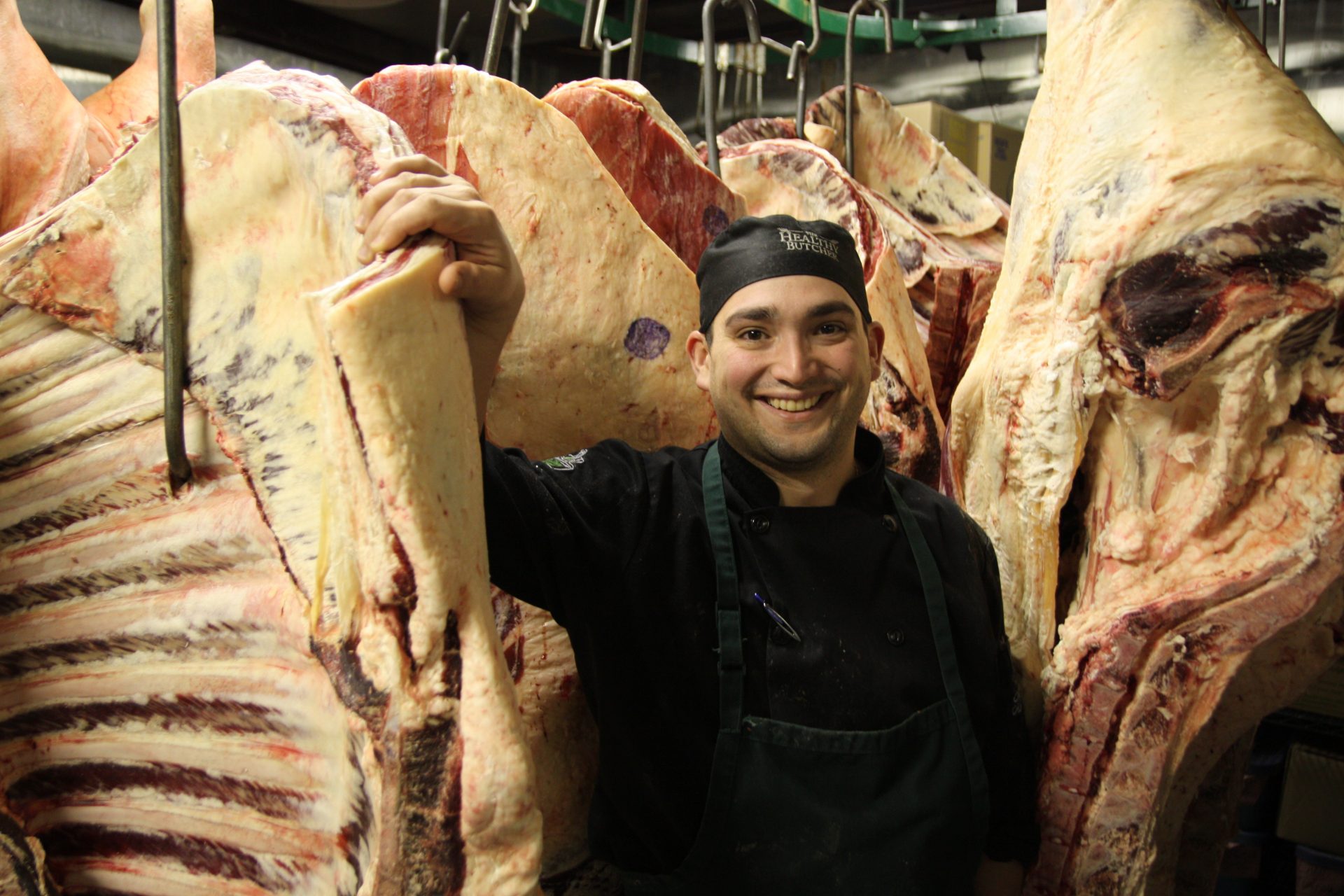by Joshna Maharaj
Something really great happened at City Hall last week. For the first time, Toronto chefs, and food industry professionals left their kitchens and filed into a Board of Health meeting room to advocate for good food. On the table for consideration was a food strategy called “Cultivating Food Connections: Toward a Healthy and Sustainable Food System for Toronto” that has been thoughtfully and collectively created by Toronto Public Health and the Toronto Food Policy Council. This integrated and innovative strategy will position food centrally in our city, with a focus on creating food-friendly neighbourhoods, developing food skills and embedding food systems thinking in all areas of municipal government, to name a few elements.
To me, it’s really exciting news that we’re actually working towards creating and embracing a food strategy in Toronto. I’ve been frustrated at how seemingly unengaged all three levels of our government have been with regards to food, particularly in the face of swelling local hunger issues, our global food/environmental crisis, and (it should be mentioned) the very proactive position that our friends south of the border have taken to support good food at the federal level. What would it take to get a kitchen garden on the lawn on Parliament Hill, or to establish a ministry of food that addresses food beyond its agricultural connections? A farmer friend of mine chatted briefly with Steven Harper at a dinner in Ottawa once, and when he told our PM that he is a farmer who grows vegetables, Harper made a yucky face and said “I hate vegetables.” Right.
While I’m sure it’ll take much longer to get our conservative government to embrace good food values in national politics, the tide is starting to turn at the municipal level, and that is a very good thing. This food strategy understands that food has connections in all aspects of municipal life, with relevant health, social, environmental, economic and cultural applications. The biggest idea here is that food is a very effective rallying point; it’s something that everyone, by virtue of their humanity can get behind, and therefore has the power to really propel change.
I have been a huge proponent of the idea that chefs can play a crucial role as champions of good food. In this city, we have one of the most engaged and willing group of chefs anywhere. Toronto chefs are consistently generous with their time, their skills and their food, and our events almost always involve some sort of mighty collaboration of a number of city chefs (last year’s Slow Food Banchetto boasted a collection of over 20 chefs from the Toronto area). One of the most consistent comments I’ve heard from visiting food industry people is how miraculous it seems that we’re able to get groups of chefs to agree to leave their egos at the door and work together to raise money for, celebrate and support the larger community. What I think is particularly lovely is that this has grown quite organically, and is more of a reflection of who we are rather than some sort of conscious strategy. This humble co-operation combined with our undeniably masterful and innovative approach to food and cooking is, in my opinion, the greatness of our community of chefs.
In this same spirit, I put a call out to my fellow chefs to support this food strategy, to let city government know that good food is important to us, and that we as food professionals are concerned with food issues both inside and outside of our restaurants. I was convinced that the visual of chefs’ whites and aprons in City Hall was an important one, and wanted to make sure that we went on the record in support of a holistic and comprehensive food strategy for our city. With a mighty team of colleagues standing behind me, I delivered a deputation to the Board of Health. On behalf of Slow Food Toronto, and our city’s food and hospitality industry, I said that “it is time for government to take an active role in supporting all Torontonians to access good, healthy food, wherever they live in the city,” and that “food has an incredible power to nourish individual people and families, and it can also build strong, thriving communities, and nurture culture.”
To my delight, there were smiles and nods all around from board members. In response to the strategy’s proposed plan to grow young people’s food skills, city councillor Paula Fletcher highlighted the short-sightedness of deciding to convert many elementary and high school kitchens into computer labs in the early 90’s. She suggested that the TDSB be brought into the conversation to talk about putting food back into the school curriculum. Other councillors and board members voiced similar opinions in support of the food strategy, and we were all very encouraged. In the end, the board voted unanimously to pass the strategy, which now has to be taken to the Executive Council for consideration.This was a victory for good food, and I was giddy at the thought of a bigger food conversation in municipal politics! I am so grateful to my colleagues for taking time out of their kitchens to advocate for good food. And I am excited to see how this strategy will take shape. There is still considerable work ahead of us, as there will be a new government that ultimately passes and implements the food strategy, and our next task is to engage mayoral candidates in discussion about food to ensure that this issue stays firmly on the table.
Here’s what you can do: read the strategy, and start asking questions of your local city councillor regarding their support of it. During the upcoming mayoral election, there will be plenty of opportunities for our candidates to publicly support and discuss this food strategy, and it is up to all of us in this city to encourage this conversation. And if you aren’t already connected to good food, jump in! Pay a visit to a farmer’s market, they’re all open now, and the tables are slowly starting to fill with the bounty of our local harvest.
From restaurants to food banks, implementing this food strategy will put our city one step closer to creating an ethos and culture of food that reflects the full diversity of our human relationship with this most essential life source. Collectively, we have the power to turn our city into a thriving foodtopia. Let’s not waste this brilliant opportunity.
 Joshna Maharaj is passionately committed to good food and ideas of sustainability. An active member of Slow Food, and dedicated food activist, she works to promote the awareness of the power of food to nurture, build and strengthen communities. Photo: John Gundy.
Joshna Maharaj is passionately committed to good food and ideas of sustainability. An active member of Slow Food, and dedicated food activist, she works to promote the awareness of the power of food to nurture, build and strengthen communities. Photo: John Gundy.








